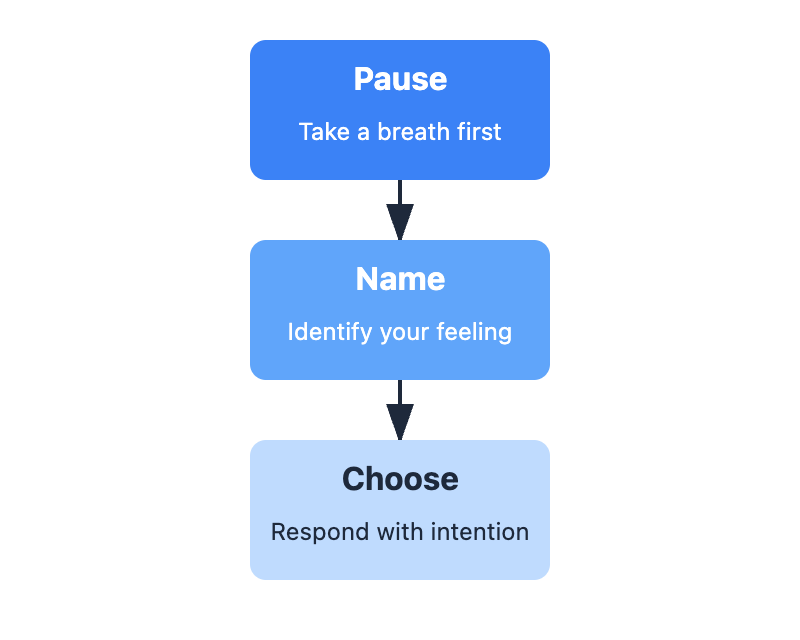Navigating tough conversations at work isn’t just about what you say—it’s about how you handle the emotions that inevitably arise. In this unit, you’ll learn how to manage your own reactions and respond constructively when others are upset, defensive, or withdrawn. Mastering these skills will help you keep conversations productive, even when the stakes feel high.
Emotions can quickly shape the direction of a conversation. If you react impulsively to a colleague’s frustration, things can escalate fast. For example, if someone says, "I can't believe you didn't include me in that decision!", responding with "You’re overreacting" will likely make things worse. Instead, acknowledging their feelings—"I can see this caught you off guard. Can you share more about what you needed in that moment?"—helps defuse tension and opens the door to understanding.
Managing your own emotions is just as important. Before a tough conversation, take a moment to check in with yourself. Are you feeling anxious, frustrated, or defensive? Naming your emotion can help you stay grounded. If you notice your heart rate rising, try a simple pause or a deep breath before responding. This small step can prevent you from saying something you’ll regret.
During high-emotion moments, focus on listening and slowing down your responses. If you feel triggered, it’s perfectly acceptable to say, "I need a moment to process what you’ve said." This gives you space to collect your thoughts and signals respect for the conversation.
When the other person is upset, your role is to de-escalate. Show empathy by reflecting what you hear: "It sounds like this has been really stressful for you." Avoid phrases that dismiss their feelings, such as "Just calm down." Instead, use language that shows you’re present and open, like "I want to understand what’s most important to you right now."
If someone withdraws or goes silent, gently invite them back in: "I notice you’re quiet—would you like to share your perspective?" These small shifts in language can make a big difference in keeping the conversation constructive.
One helpful technique to use to ground yourself in moments of conflict is the "Pause, Name, Choose" framework:

Using this framework can help you stay calm and intentional, even when emotions run high.
- Natalie: I’m honestly frustrated that I wasn’t told about the client meeting change until the last minute.
- Jake: I hear you, Natalie. It sounds like that was stressful.
- Natalie: It was. I had to scramble to adjust my schedule, and it made me feel out of the loop.
- Jake: Thanks for sharing that. I want to make sure you feel included going forward. What would help next time?
- Natalie: Just a quick heads-up would make a big difference.
- Jake: Absolutely. I’ll make it a point to update you sooner in the future.
In this exchange, Jake manages his own reaction and responds with empathy, helping Natalie feel heard and moving the conversation toward a solution. Notice how he avoids defensiveness and instead focuses on understanding and de-escalation.
